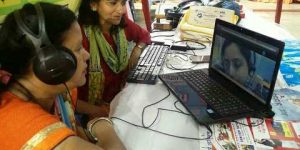New Delhi: August 3, 2023
As India moves deeper into the 21st century, it has become increasingly evident that improving the healthcare system has climbed near the top of the nation’s agenda. The key challenges have been evident for some time providing access to care for every Indian, assuring a high quality of care across the system, reducing medical errors, and finding the resources to pay for it.
Broadband connectivity has the potential to significantly improve healthcare in rural India in several ways:
- Telemedicine Services:
- Remote Consultations: Broadband allows healthcare professionals to conduct remote consultations with patients in rural areas, providing medical advice and diagnosis without the need for physical travel.
- Telehealth Platforms: Broadband facilitates the use of telehealth platforms, enabling patients to connect with healthcare providers, access medical information, and receive follow-up care online.
- Health Information Exchange:
- Electronic Health Records (EHRs): Broadband connectivity supports the efficient exchange of electronic health records, allowing healthcare providers in rural areas to access comprehensive patient information and deliver more coordinated care.
- Medical Training and Education:
- Online Training Programs: Broadband enables healthcare professionals in rural areas to participate in online training programs, workshops, and continuing medical education, enhancing their skills and knowledge.
- Remote Learning for Patients: Patients can access online resources for health education and preventive care, promoting awareness and well-being.
- Remote Monitoring and Diagnostics:
- IoT Devices: Broadband connectivity facilitates the use of Internet of Things (IoT) devices for remote patient monitoring. This allows healthcare providers to track vital signs and manage chronic conditions from a distance.
- Diagnostic Imaging: High-speed broadband is essential for transmitting medical imaging data, enabling remote diagnostic services for rural healthcare facilities.
- Appointment Scheduling and Reminders:
- Online Booking Systems: Broadband enables the implementation of online appointment scheduling systems, making it easier for patients in rural areas to book appointments and receive timely healthcare services.
- Automated Reminders: Healthcare facilities can use broadband-connected systems to send automated reminders for appointments and medication schedules, improving adherence to treatment plans.
- Health Data Analytics:
- Population Health Management: Broadband connectivity supports the analysis of health data on a broader scale, allowing healthcare providers to identify trends, assess public health needs, and implement targeted interventions in rural communities.
- Emergency Services:
- Teleemergency Services: Broadband facilitates real-time communication for emergency consultations, enabling healthcare professionals to provide immediate guidance and support in critical situations.
- Pharmacy Services:
- Online Pharmacies: Broadband connectivity enables the operation of online pharmacies, allowing patients in rural areas to order medications and healthcare products online, ensuring timely access to essential items.
In summary, the availability of broadband connectivity in rural India holds great potential for bridging the healthcare gap by facilitating telemedicine, improving access to information, supporting medical education, and enhancing the overall efficiency of healthcare services in remote areas. It contributes to the goal of ensuring that quality healthcare is accessible to all, regardless of geographical location.







